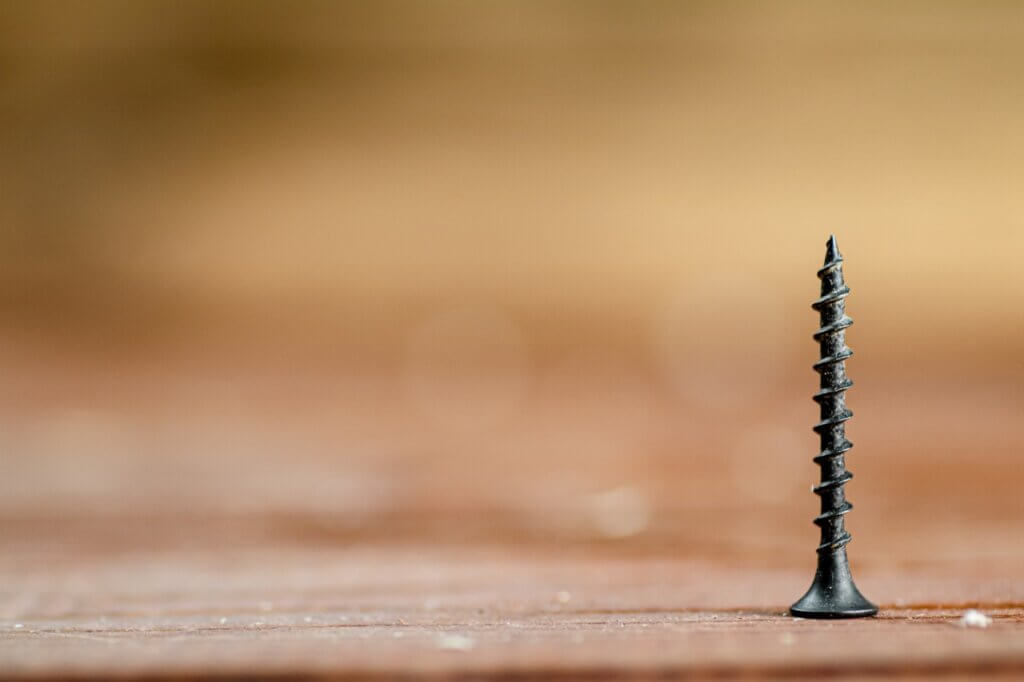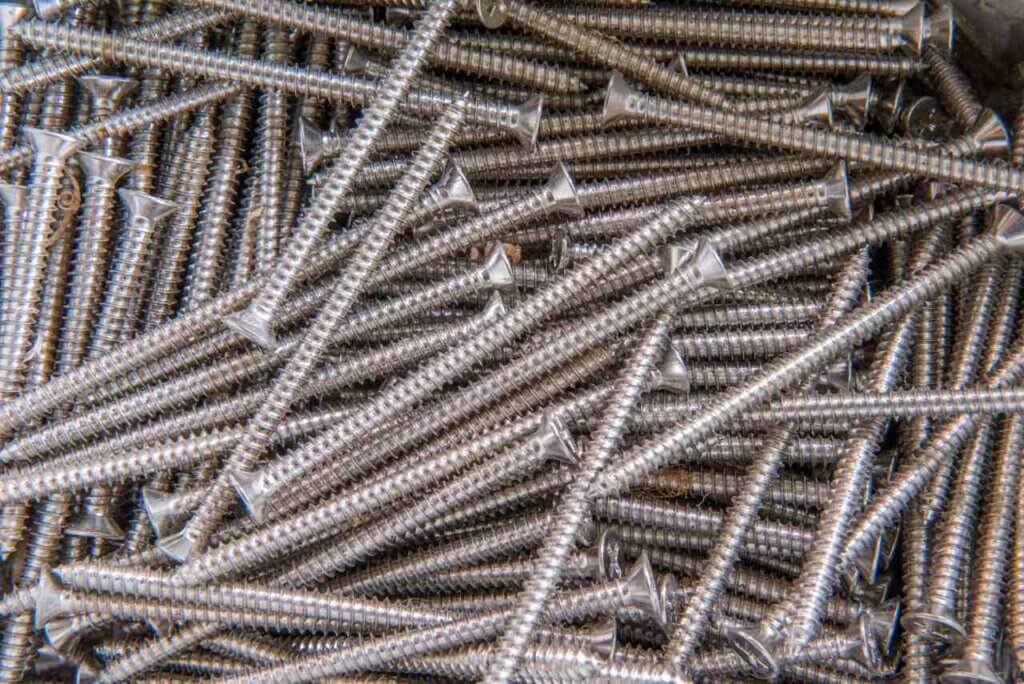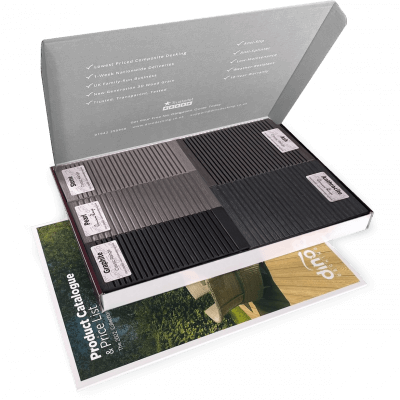5 Composite Decking Lighting Ideas
Our composite decking looks great in any setting, but you can really make your outdoor spaces shine with our decking
Products in Stock
Lowest Prices
Express Delivery
10-Year Warranty
Bank Holiday Weekend Sale. Up To 15% Off.

Picture this: a sunny bank holiday weekend, the smell of freshly cut timber in the air, and you, armed with a drill and a vision, ready to build the deck of your dreams. But wait! Before you get carried away with visions of al fresco dining and summer soirées, there’s a crucial detail to consider: the humble deck screw.
Yes, those seemingly insignificant fasteners play a pivotal role in the structural integrity and longevity of your deck. Choosing the right screw length is paramount, ensuring a secure, stable, and safe outdoor haven for years to come. So, let’s dive in and equip you with the knowledge to make informed choices for your decking project.
Why all the fuss about screw length, you might ask? Well, here’s the thing:
Specifically designed for composite decking materials, these screws offer superior holding power and resistance to corrosion.
Ideal for traditional timber decking, these screws are typically made from hardened steel and feature a coarse thread for optimal grip in wood.
Offering exceptional corrosion resistance, stainless steel screws are a premium choice for decks exposed to harsh weather conditions or coastal environments.
These screws feature a protective coating that enhances their resistance to corrosion and weathering, making them suitable for outdoor use.
Driven with a socket wrench, hex head screws offer increased torque and holding power, making them suitable for heavy-duty applications.
Equipped with a drill bit tip, these screws eliminate the need for pre-drilling, saving time and effort during installation.
Designed specifically for wood-plastic composite decking, these screws offer optimal holding power and durability in this unique material.
Choosing the right screw length depends on several key factors:
Different decking materials have varying thicknesses and densities, requiring different screw lengths for optimal penetration and holding power.
Thicker deck boards require longer screws to ensure they penetrate sufficiently into the joists below.
The distance between your joists also influences screw length. Wider joist spacing might require longer screws to provide adequate support and prevent sagging.

Here’s a general guideline for screw lengths based on common decking materials:
For standard softwood decking boards (typically around 25mm thick), screws between 50mm and 65mm are usually recommended. For hardwoods or thicker boards, longer screws might be necessary.
Composite decking boards vary in thickness, but a general rule of thumb is to use screws that are at least twice the thickness of the board. For example, a 20mm thick composite board would typically require screws that are at least 40mm long.
PVC decking is typically thinner than wood or composite decking. Screws between 30mm and 40mm are usually sufficient for most PVC decking installations.
Here are some additional tips to ensure you select the perfect screws for your decking project:
Always consult the decking manufacturer’s recommendations for screw type, length, and spacing. They often provide specific guidelines to ensure optimal performance and longevity.
If your deck will be exposed to harsh weather conditions, such as coastal environments or areas with heavy rainfall, opt for stainless steel or coated screws for enhanced corrosion resistance.
Even the best screws won’t perform optimally if they’re not installed correctly. Ensure screws are driven straight and at the correct depth to avoid damaging the decking material or compromising the structural integrity of your deck.
Here are a couple of common pitfalls to avoid when choosing and installing deck screws:
Using screws that are too short can result in inadequate holding power and potential instability. Conversely, screws that are too long can protrude through the surface of the deck, creating a tripping hazard and an unsightly finish.
Different decking materials have specific screw requirements. Using the wrong type of screw can lead to corrosion, staining, or even damage to the decking material.
Choosing the right deck screws might seem like a minor detail, but it can make a world of difference in the longevity, safety, and overall success of your decking project. If you’re planning a decking project and need guidance on screw selection or other aspects of deck construction, feel free to explore our resources on correct frame spacing for deckings and other helpful topics. And if you’re looking for high-quality decking materials to bring your vision to life, browse our range of the best selling composite decks in the UK and order a sample today.

Our sample pack contains a sample piece of each colour currently available. Order your free sample pack today to compare the colours and get a true feeling of the Dino Decking range!
Our composite decking looks great in any setting, but you can really make your outdoor spaces shine with our decking
If the idea of having rats under your decking makes you shiver, don’t worry. We’ll let you know the signs
Business hours
Monday: 09:00 – 17:30
Tuesday: 09:00 – 17:30
Wednesday: 09:00 – 17:30
Thursday: 09:00 – 17:30
Friday: 09:00 – 17:30
Saturday: Closed
Sunday: Closed
Contact us
01942 355968
support@dino.co.uk
Collection Address: Unit 1 Wetheral Close Hindley Ind Estate Wigan Greater Manchester North West WN2 4HS
Pages
Products
Testing
Copyright 2025 Dino Decking Ltd All Rights Reserved.
VAT Number: GB296097848.
Company Number: 10837233.